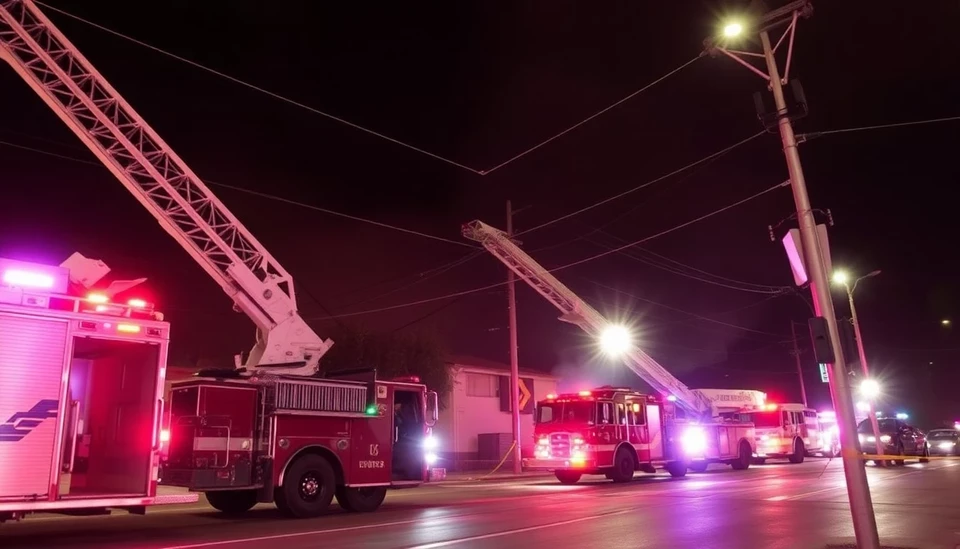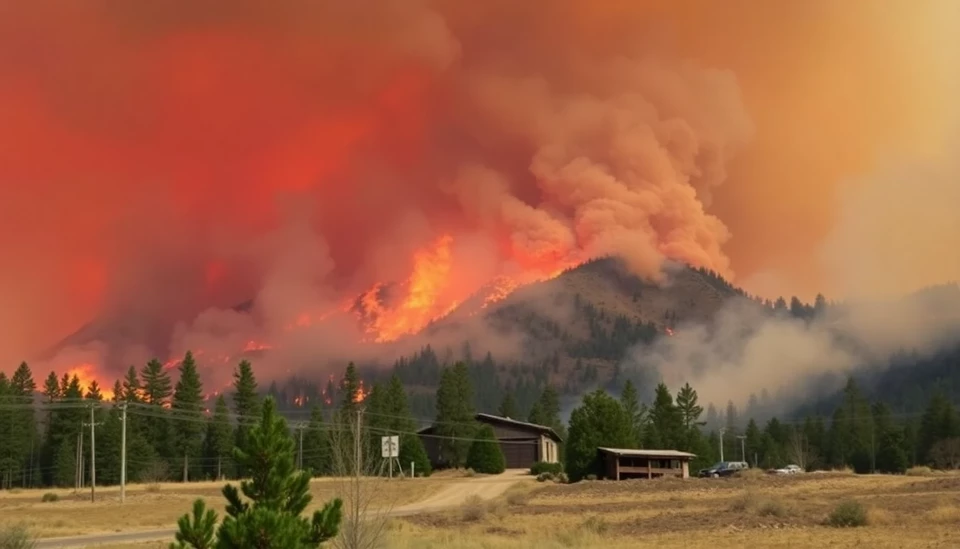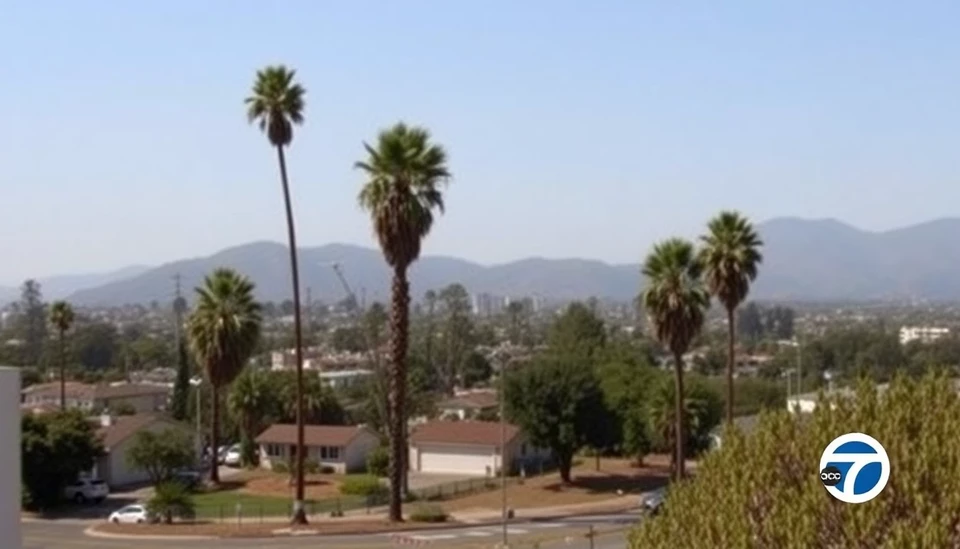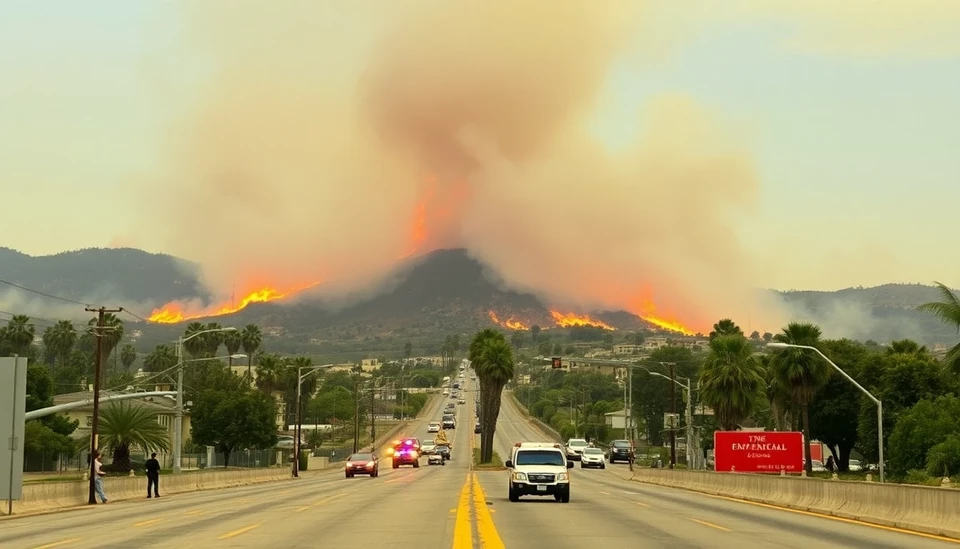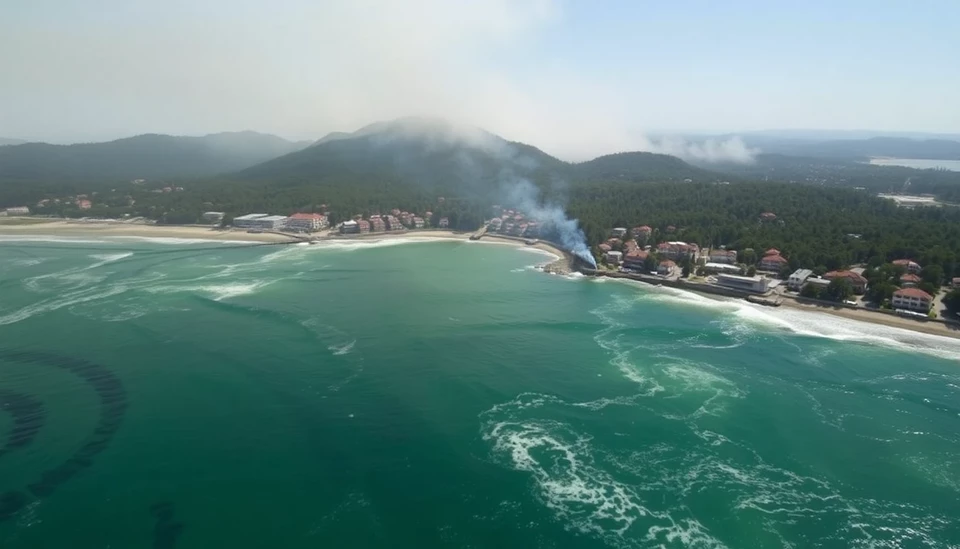
Recent research has unveiled a compelling link between rising ocean temperatures and the increased frequency and severity of wildfires in California, specifically in the Los Angeles area. This correlation is garnering critical attention as the state grapples with a troubling combination of drought conditions and fire hazards that threaten ecosystems and communities.
The findings suggest that unusually warm ocean waters are disrupting weather patterns, exacerbating dry spells and creating ideal conditions for wildfires. As the California coast absorbs heat from global warming, it not only alters sea surface temperatures but also influences atmospheric conditions. This plays a crucial role in producing hot, dry winds—perfect for fueling fires that devastate both urban and rural landscapes.
Experts are particularly concerned about how these patterns will evolve. Climate change, driven by human-induced fossil fuel emissions, intensifies the existing threat of fire in the region. With Los Angeles already facing severe drought, the heightened ocean warmth only compounds the risk, leading to a potential cycle of worsening conditions where fires become more common and intense.
In light of this information, local authorities and environmentalists are urging for more rigorous climate action. Their calls emphasize the necessity of addressing climate resilience in urban planning and fire management strategies. The state has faced numerous large-scale wildfires in recent years, and the latest studies underscore the urgency of adapting to the changing climate. Potential solutions could include enhancing forest management, investing in resilient infrastructure, and improving early warning systems for fire outbreaks.
As the relationship between ocean heat and wildfire activity continues to unfold, it raises significant questions about the role of climate policy in mitigating these impacts. Local governments, communities, and organizations are grappling with understanding how to lessen vulnerability and bolster resilience in an era of climate uncertainty.
Efforts will need to be concerted and proactive, engaging scientists, policymakers, and citizens alike. Addressing sources of greenhouse gas emissions is pivotal for curbing the rate of ocean warming, while simultaneously investing in fire prevention and recovery efforts will buffer communities against future devastation.
This situation serves as a reminder of the interconnectedness of climate systems and the elusive balance that must be maintained to protect vulnerable regions like Los Angeles. The implications not only resonate locally but serve as a cautionary tale for other areas threatened by similar challenges.
#CaliforniaFires #OceanHeat #ClimateChange #Drought #LosAngeles #WildfireRisk #EnvironmentalScience #ClimateAction
Author: Peter Collins
